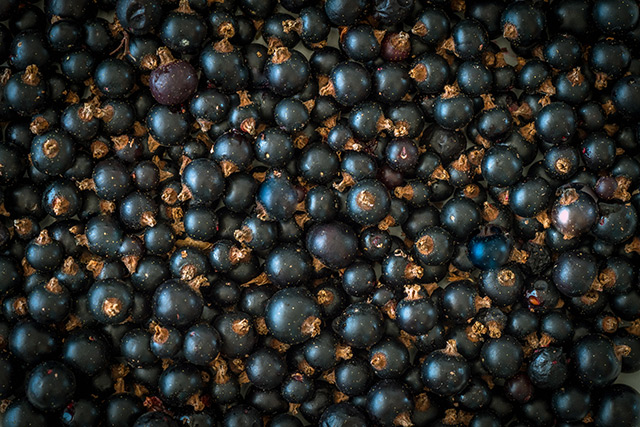Good for the lungs, too: Resveratrol found to reduce pulmonary toxicity
10/16/2018 / By Edsel Cook

A natural substance-turned-supplement can help protect your lungs from toxic nanoparticles generated by industrial air pollution. Taiwanese researchers reported that resveratrol can reduce the toxic effect of carbon black nanoparticles (CBNPs) on the lungs.
Nanoparticles are tiny particles that are measured in terms of nanometers. Synthetic ones are used in all kinds of commercial items. They are also produced as waste products by industrial processes.
Many of the nanoparticles used in cosmetics and biotech are toxic to humans. They are also easily inhaled due to their small size. When they end up inside the lungs, they can trigger inflammation that leads to heart and lung diseases.
One of the biggest offenders are carbon black nanoparticles. Their carbon composition lets them affect the proper function of many different kinds of cells throughout the entire body.
CNBPs can create reactive oxygen species (ROS) and cytokines that trigger inflammation within cells and membranes. Experts believe these nanoparticles use certain pathways in the body to induce oxidative stress that damages the body’s organs. (Related: Resveratrol treatments can slow lung disease, study shows.)
Testing the pulmonary protective property of resveratrol
The inflammatory effect can be counteracted by substances with antioxidant activities that suppress inflammation and scavenge reactive oxygen species into harmless substances. One of the most promising anti-inflammatory candidates is resveratrol.
A polyphenol derived from fruits and other foods, resveratrol stops lipopolysaccharides from inducing inflammation. It is naturally found in the skin of grapes and berries. It is also available as a dietary supplement.
The Kaohsiung Medical University (KMU) researchers investigated the protective effects of resveratrol against the oxidative stress and inflammation caused by CBNPs. They sought to identify the molecular mechanism by which the polyphenol achieved its anti-inflammatory activity.
They obtained human lung epithelial cells and grew them into multiple cultures. They then added CBNPs to the cultures and measured the resulting inflammation to determine its cytotoxicity.
To determine the means by which CBNPs caused inflammation and oxidative stress, the cultures were pre-treated with N-acetyl cysteine (NAC), diphenylene iodonium (DPI), and other substances. These substances would impede the production of reactive oxygen species (ROS) and serve as a comparison.
Furthermore, different amounts of resveratrol were tested for ability to protect lung cells against the toxic nanoparticles. The results of the tests were analyzed and compared to those from a control group of normal lung cells.
Dietary supplement reduces inflammation in lung cells
The cytotoxicity test confirmed that CBNPs greatly reduced the viability of human lung cells, making them very toxic. The nanoparticles activated protein kinase alpha (PKC-alpha), increased the expression of NADPH oxidase (Nox), and caused p67phox membrane translocation.
Furthermore, CBNPs upregulated the expression of inflammatory proteins. This leads to larger amounts of reactive oxygen species like nitric oxide (NO), inducible nitric oxide synthase (iNOS), COX-2, and prostaglandin E2 (PG-E2). These ROS cause oxidative stress that damages cells.
Pre-treatment of cultures with resveratrol was able to reduce the negative effects of CBNPs dependent on the dose. It prevented the CBNPs-triggered expression of PKC-alpha.
Other chemicals that worked on CBNP-induced inflammation are N-acetyl cysteine, an antioxidant which scavenged reactive oxygen species, and diphenylene iodonium. The latter is able to attenuate the production of iNOS and COX-2, as well as ROS, NO, and PGE2.
From these findings, the researchers believe that resveratrol-rich foods and dietary supplements could possibly serve as a way to protect the lungs from the ever-increasing levels of air pollution and consumer products that contain carbon black nanparticles.
To learn more about the protective benefits of taking resveratrol, you can visit NaturalMedicine.news.
Sources include:
Tagged Under: anti-inflammatory, antioxidants, disease prevention, lung health, Lungs, nanoparticles, natural remedies, oxidative stress, resveratrol, supplements




















